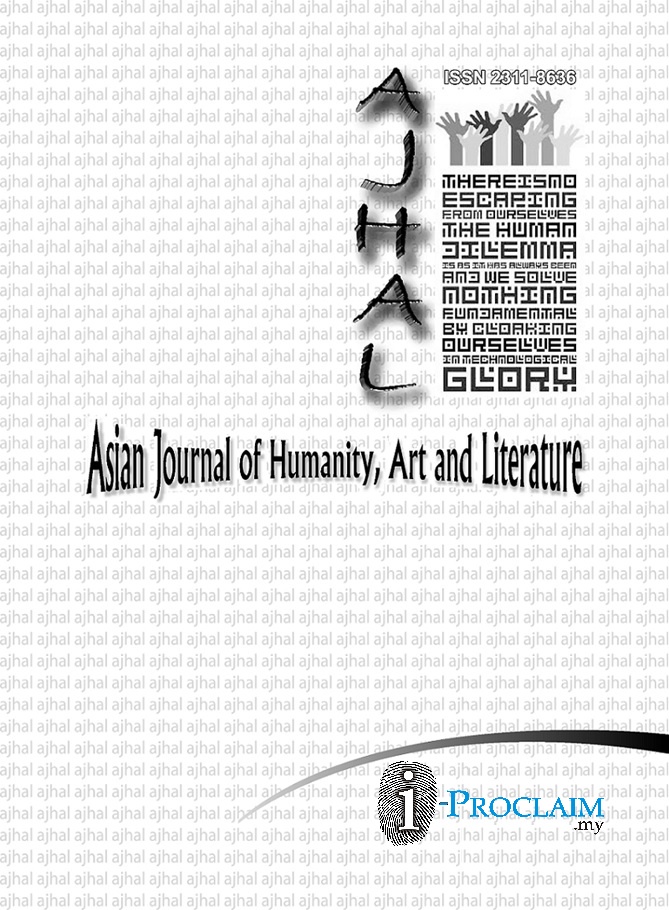Trauma and Displacement: Exploring the Diasporic Experience in Amitav Ghosh’s The Shadow Lines
DOI:
https://doi.org/10.18034/ajhal.v12i1.792Keywords:
Diaspora, Postcolonial Literature, Partition Trauma, Identity and Belonging, Amitav Ghosh, Migration and Memory, The Shadow LinesAbstract
This qualitative research examines the themes of trauma and displacement in Amitav Ghosh’s The Shadow Lines, focusing on the diasporic experiences of key characters, including Tridib, the unnamed narrator, Thamma, Mayadebi, Ila, and May. The study employs close textual analysis to examine how the characters’ lives are disrupted by migration, war, and the partition of India, leading to a fractured sense of identity and belonging. By analyzing Ghosh’s narrative techniques and the shifting geographical settings, the research highlights the psychological impact of dislocation and the struggle of migrants to integrate into new, unfamiliar lands. The paper reveals that the characters’ fragmented experiences and the trauma of displacement reflect a broader diasporic condition marked by cultural alienation and a perpetual search for home. Ghosh’s portrayal of these individuals’ emotional, cultural, and physical displacements highlights the profound impact of historical and political upheavals on personal identities and interpersonal relationships, underscoring the enduring legacy of dislocation in the collective memory of the diaspora. Through this approach, the study sheds light on the complex interplay between memory, history, and identity in shaping the diasporic consciousness.
Downloads
References
Biyani, K. (2004, September 15). Nationalism and displacement in the Indian diaspora. Kaushlesh Biyani’s Website.
Geethanjali, N., & Prema, R. (2021). Nationalism in Amitav Ghosh’s The Shadow Lines. Journal of Language and Linguistic Studies, 17(4), 2797–2802. https://www.jlls.org/index.php/jlls/article/viewFile/4396/1303
Ghosh, A. (2008). The shadow lines. Penguin Books.
Hussain, S. (1999). Postcolonial angst in Amitav Ghosh's The Shadow Lines. In A. Zaman & H. Zaman (Eds.), Colonial and postcolonial encounters. The University Press Limited.
Pattanayak, K. (2021). Amitav Ghosh’ The Shadow Lines: Mapping cross-border identity. The Creative Launcher, 6(3), 118–122. https://doi.org/10.53032/TCL.2021.6.3.23
Prasad, M. (1999). The Shadow Lines: A quest for indivisible sanity. In M. K. Pandey (Ed.), Contemporary Indian literature in English: A humanistic perspective (p. 56). Kalyani Publishers.
Prasad, M. (2008). Amitav Ghosh’s The Shadow Lines: Re-reading its craft and concerns. Asiatic, 2(1), 69–82. https://journals.iium.edu.my/asiatic/index.php/AJELL/article/download/364/341/0
Khatun Prima, K. (2024). Navigating ambivalence and exile: A multidimensional analysis of migration in Amitav Ghosh’s The Shadow Lines (Unpublished master’s thesis). Department of English and Humanities, BRAC University. https://dspace.bracu.ac.bd/xmlui/bitstream/handle/10361/22644/20103057_ENH.pdf?sequence=1&isAllowed=y
Veerappa, B., & Kapadia, N. (2001). Amitav Ghosh's The Shadow Lines. Asia Book Club.
Downloads
Published
Issue
Section
License
Copyright (c) 2025 Liton Baron Sikder, Md. Jobaar Talukder

This work is licensed under a Creative Commons Attribution-NonCommercial 4.0 International License.















